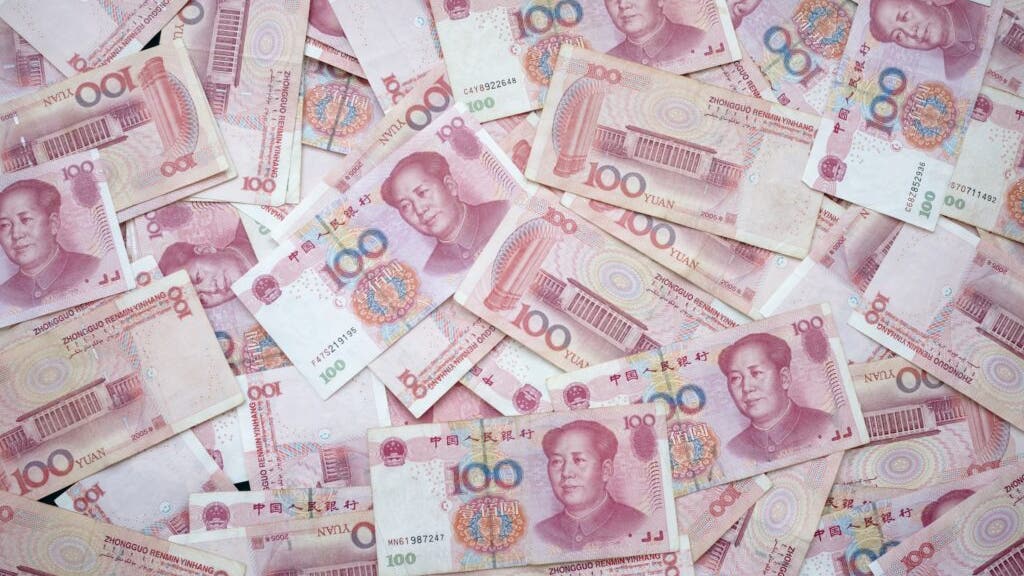Alibaba Group Holding (NYSE:BABA), the China tech industry barometer, is trading higher, marking its third week of gains as investors anticipate more upcoming stimulus, SCMP reports.
Alibaba’s e-commerce rivals, including PDD Holdings Inc. (NASDAQ:PDD), JD.com, Inc. (NASDAQ:JD), and Baidu, Inc. (NASDAQ:BIDU), saw gains on Friday.
In September, China’s central bank shared plans to slash banks’ reserve requirement ratio (RRR) by 50 basis points or half a percentage point and reduce the seven-day reverse repurchase rate to 1.5% from 1.7% to spur domestic spending. Additionally, China agreed to let homeowners refinance mortgages.
Also Read: Alibaba and JD.com Battle for Hong Kong Shoppers, Stocks Slide After Stimulus Rally
John Choi of Daiwa Securities told the SCMP that stocks are trading below their three- and five-year averages. He expects e-commerce companies to be the key beneficiaries of further stimulus measures.
China’s stimulus package on September 24 restored over $3 trillion in market value to Chinese stocks in Hong Kong, Shanghai, Shenzhen, and New York, SCMP cites Bloomberg data.
Alibaba stock gained 37% in the last 30 days. JD is up over 66%, Baidu 33% and PDD 65%.
The upcoming holiday shopping season also poses a tailwind for e-commerce stocks. Alibaba earmarked 40 billion yuan ($5.7 billion) in resources for Taobao and Tmall to tap the Singles’ Day shopping festival on November 11.
The beaten-down Chinese electric vehicle stocks, including NIO Inc (NYSE:NIO), Li Auto Inc (NASDAQ:LI), XPeng Inc (NYSE:XPEV), and ZEEKR Intelligent Technology Holding (NYSE:ZK) also saw gains on Friday.
China has been battling a weak economy due to its export reliance and an aging population. The 2020 pandemic disrupted China’s semiconductor supply chains, triggering a crisis for semiconductor chips that go into smartphones, PCs, other electronic devices, and cars.
The intense domestic regulatory crackdown on the Chinese hyperscalars in the same year further added to the woes. The regulatory scrutiny cost Alibaba the initial public offering of its fintech affiliate Ant Group and severe ties with co-founder Jack Ma.
China’s property crisis posed an additional headwind. The real estate sector accounted for 25%-30% of the country’s GDP, Reuters reports. However, average home values tumbled from their 2021 highs after a regulatory crackdown on excessive debt among developers in 2020, leading to severe cash crunches, incomplete projects, defaults, and public protests by homebuyers.
China’s supply chain disruption prompted the U.S., Europe, and Japan to consolidate their semiconductor positions by ending their reliance on China.
China was the leading integrated circuit (IC) customer, accounting for 36% of U.S. semiconductor sales in 2022, according to Citi. The leading semiconductor market represented 31.4% of global final sales, or $180 billion out of $574 billion in 2022, according to Citi.
Additionally, the U.S. imposed semiconductor sanctions on China, citing national security reasons, cutting it off from advanced artificial intelligence chips and further restricting its growth prospects.
In August, China signaled an end to its regulatory crackdown on hyperscalars like Alibaba. The regulator fined Alibaba $2.8 billion in 2021, which amounted to 4% of the e-commerce juggernaut’s 2019 revenue.
Also Read:
Photo by Eric Prouzet on Unsplash
Up Next: Transform your trading with Benzinga Edge’s one-of-a-kind market trade ideas and tools. Click now to access unique insights that can set you ahead in today’s competitive market.
Get the latest stock analysis from Benzinga?
This article What’s Going On With Chinese Stocks Alibaba, JD, Nio, Li Auto XPeng on Friday? originally appeared on Benzinga.com
© 2024 Benzinga.com. Benzinga does not provide investment advice. All rights reserved.
Read the full article here

